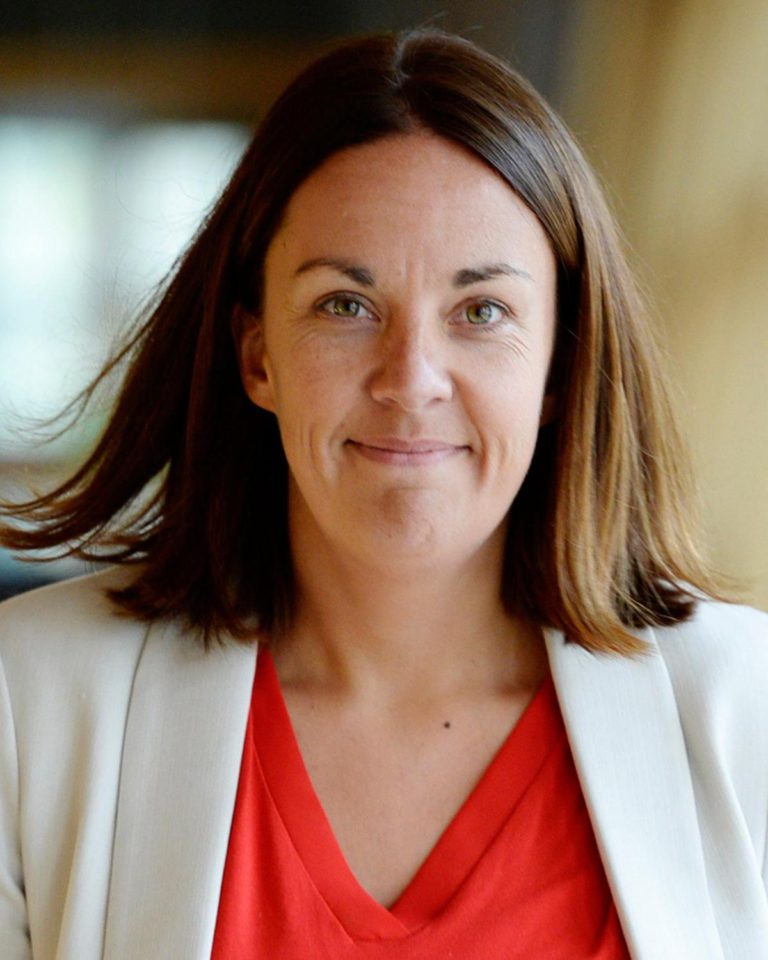
Eddie Barnes
Eddie Barnes is Campaign Director of Our Scottish Future
*This is the weekly newsletter we send to our list. If you would like to receive our newsletters straight to your inbox please sign up on our website*
“Memo to self, you can’t have a nuanced debate about the constitution,” tweeted Kezia Dugdale, the former leader of the Scottish Labour party, a few days ago. She was responding to a characteristically frenzied online backlash to her comments at an Edinburgh fringe event a few days previously on the subject of independence. Many pro-Union supporters did not take kindly to her admission that “I couldn’t argue with the same strength for the union that I did in 2014” and that she had “moved” on the big binary divide. Emerging from the social media pile on, Dugdale – who has forged a successful second career at the John Smith Centre at Glasgow University in recent years – appears to have taken the lesson from the row that the best thing to do in Scotland’s constitutional debate is to butt out of it.
I think that’s a shame. It’s possible to disagree with Dugdale without wanting her views battered into silence. Indeed, I’d go further and say it’s vital that the views expressed by Dugdale – which are also held by thousands of Scots around the country (such as by the excellent Herald columnist Mark Smith) – are aired and listened to. It’s vital for the health of Scotland’s post-referendum political debate. It’s also vital for pro-UK Scottish parties if they want to understand people on the ‘other side’ and, by doing so, seek to engage them in a meaningful way.
Before going any further, a quick aside: I’ve known Kezia for quite a long time and, as head of communications at the Scottish Conservatives during the 2016 Scottish election, I helped to run a campaign which ran very heavily on her (how to put this) thoughtful views on independence. We were pretty blunt and pretty brutal; all is fair in love and election campaigns. However, I’m conscious that, in defending her now, I might come across as rather hypocritical. In mitigation I plead the fact that Kezia is no longer a frontline politician and I’m no longer a Tory head of comms. It really is OK to change your mindset when circumstances alter.

So, back to what she actually said earlier this month. I wasn’t at the festival event where she spoke, but below is what the Scottish newspapers reported her as declaring:
“If you are presented with a binary choice between an independent Scotland in a progressive Europe or little Boris Brexit Britain, I know where my cards would fall down”
“I also know I couldn’t argue with the same strength for the union that I did in 2014 now.”
“That doesn’t mean I’m ready to vote Yes, there are big, big questions we need to debate as a country and resolve.”
“So I have moved… we have to keep talking about some of these big issues in the country, but not just purely through that Yes/No lens.”
“I certainly understand the case for independence much better than I did in the past. That’s not to say I didn’t appreciate the strength with which many people held that view in 2014.”
“But now I’m surrounded by Nationalists – in a very good way – and we talk about these issues all the time. And actually there’s a lot of common bonds.”
“The vision that we have for Scotland is one which is free of poverty, free of inequality, where people can prosper and be who they want to be. “
“You just have different arguments, different routes, of how to get there.”
“And that’s the conversation I want to have in Scotland now, looking at some of the big challenges that still lie ahead of us.”
“We’ve got an ageing population. That’s a huge challenge to the Scottish Parliament, it’s a huge challenge for the UK Government.”
“And I would much rather focus more on the social policy side of that rather than what I always see as a very binary, tired conversation about the Constitution.”
There you have it. Lots of reasonable points there, if you ask me. But, as mentioned at the top of this piece, the more strident elements of pro-UK Twitter viewed these comments as something approaching heresy. These people are already grumpy with Dugdale; she has, as previously mentioned, expressed doubt about the Union and – heavens! – even got married to a nationalist (the Education Secretary Jenny Gilruth). And so the comments above were seen as a further act of betrayal. Once again, she was ‘damaging the cause’.
If we were heading into another referendum campaign, or if Dugdale was still leader of the Scottish Labour party about to contest an election, then these critics would have a point; in times of conflict, there’s little room for shades of grey and political leaders need to demonstrate clarity. But we’re not and she’s not. So that criticism doesn’t hold.
But the bigger problem for the pro-Union side is that the over-the-top reaction to her comments is simple bad politics. The nuanced position that Dugdale takes isn’t just representative of her own political journey; it’s also held by hundreds and thousands of Scots. It’s these swing voters whose views currently hold the balance of opinion in Scotland. Screaming at an intelligent and thoughtful academic like Dugdale is unpleasant and weird. The bigger problem for the pro-UK side is if this unpleasant and weird visage is the one it projects to these “middle Scotland” voters too.
A far better approach is to seek to understand and listen to this nuanced take. Better to try and see where they’re coming from. Not just as a matter of good manners; it’s also because, by doing so, political parties which support Scotland’s membership of the UK might find themselves in a better position to win their vote.
I think there are three things that Dugdale’s comments help us to understand where they’re coming from on the constitution.
Firstly, her comments are a reminder that many people see the Union in essentially transactional terms. They don’t hold to a notion of Grand Britannia. They have no great sense of identity with the place or its institutions. And while, as things stand, many Scots view that transaction as just about worth it for the country, let’s be in no doubt: if push were to come to shove, and the choice they saw on offer was one “between an independent Scotland in a progressive Europe or little Boris Brexit Britain” (in Dugdale’s words) then they’d vote to leave pronto. That is the position we’re in.
Secondly, and this follows, Dugdale’s comments help us to understand the conflict many people feel about the constitution. We like to think of Scotland as a 50-50 nation, with two armies facing off against each other over the future of the country. It’s a very misleading picture. OSF polling has found that only around 60% of Scots self-identity as absolutely rock solid on their constitutional position – either Yes or No. The rest are in the mushy middle – a little bit Yes, a little bit No. They just aren’t sure. Many may feel drawn to the nationalist pull of Scottish independence (as Andy Murray once put it: “let’s do this!”). At the same time, those same people are also put off by the inevitable upheaval that separation involves. They are the opposite of certain: hence the reason they’re not that keen on a referendum any time soon.
And thirdly, her comments help us understand an underlying truth that lies beneath the headline constitutional face-off: which is that most Scots, whether they voted Yes or No, still feel they have more in common with each other than that which divides them. There are those “common bonds” on the things people care about: inequality, poverty, the cost of living. As she notes, Dugdale’s personal experience has helped her understand that the difference between the two sides here is a matter of “routes”, not the destination. Leave aside for a moment the minority of nationalist ultras who are motivated by hatred, the constitutional row is, for most people, about means not ends. The fact is that most Scots agree about the diagnosis of Scotland – the difference is over the prescription.
Put those insights together and you begin to see a way to engage more persuasively to SNP voters and pro-independence supporters. It isn’t by forcing them to pick sides in a binary battle that many aren’t really sure about and don’t really want to revisit. It’s by coming up with positive solutions to the things we care about the most.
In short, to listen and to understand where people like Dugdale are coming from is not the same as appeasing nationalism or going soft on the constitution. By contrast, it’s a vital step for pro-UK parties to take if they’re going to start winning the hearts and minds of SNP voters. It might also be good for the country as a whole. As Dugdale added in her tweet last week, without a sense of nuance on the constitution “Scotland will be stuck in a reductive holding loop, to the serious detriment of people who really need change.” I think she’s right.








